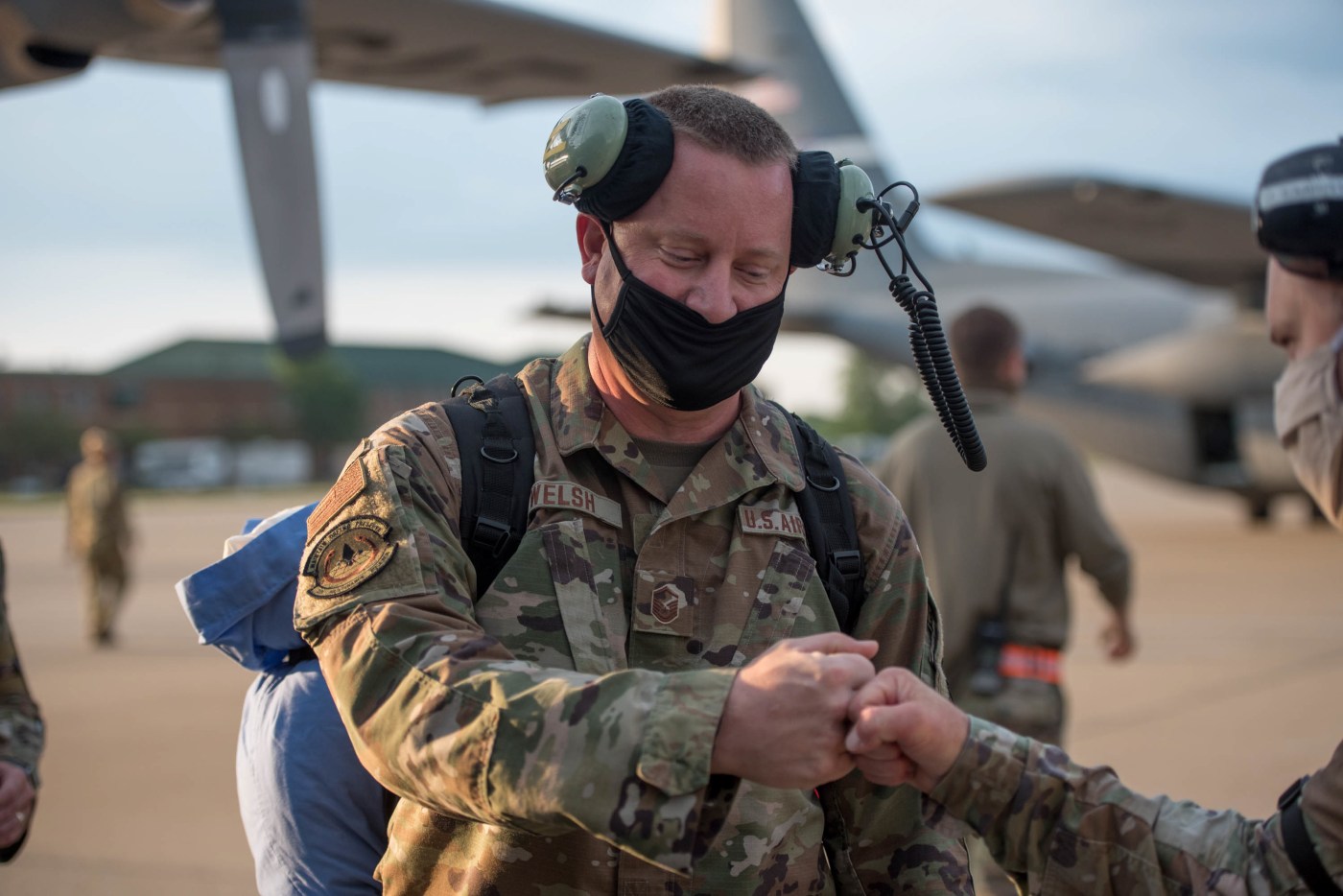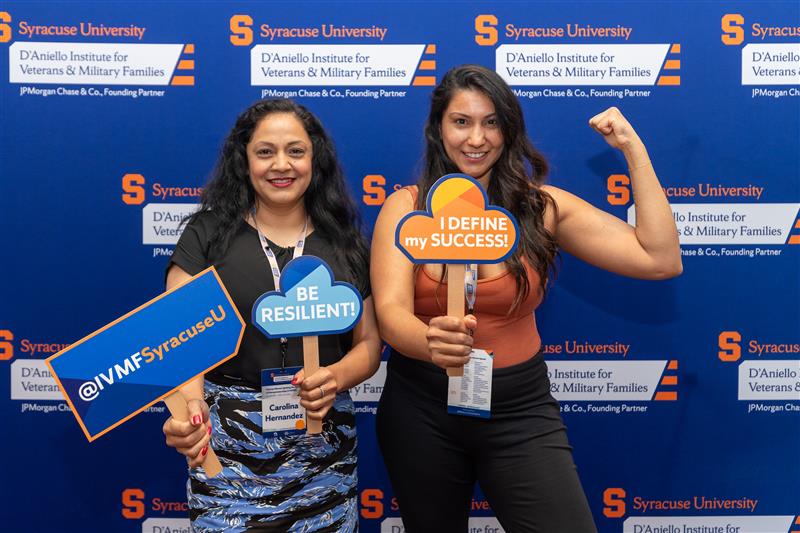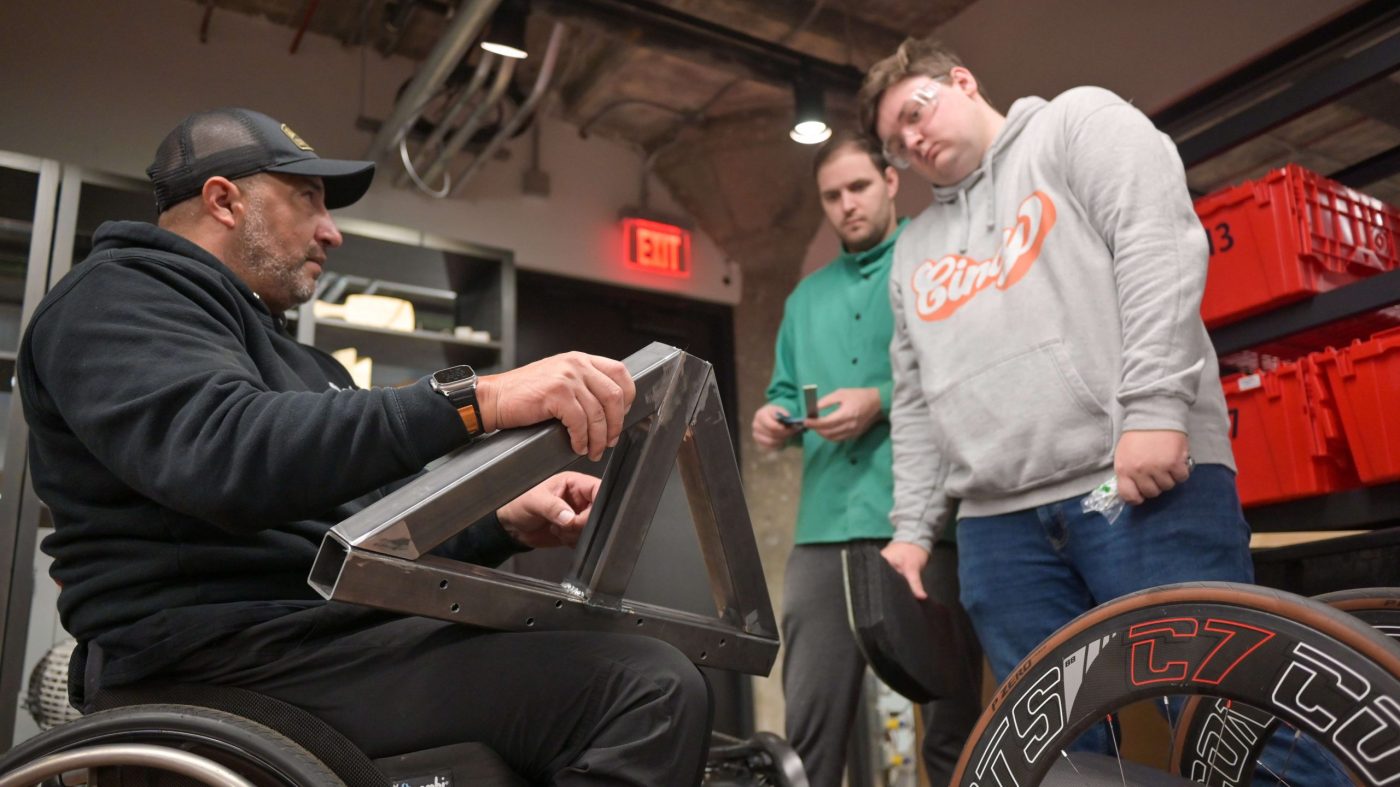Networking, while not a new concept, has become a significant component of modern life. Commonly associated with career advancement, the evolution of online social platforms has extended networking far beyond just opportunities to further one’s career.
While networking can be important and beneficial to anyone, it may be even more so for military members, Veterans and their spouses.
Former service members are aware of the difficulties that can come from adjusting to life outside of the military. Whether it’s acclimating to a new job title and company or understanding the inner workings of today’s corporate culture, Veterans often face obstacles not well-understood by those without similar experiences.
Given this reality, it makes sense for any Veteran to start forming connections and building relationships with those who understand their unique point of view.
Here are several ways joining a Veteran network can help a service member, Veteran or their spouses.
Why You Should Join an Online Veteran Network
-
It’s where your battle buddies hang out.
Every service member knows that there will be a transition to civilian life, but it impacts everyone differently. Your experiences while in the military, how long you served, where you served, your circumstance upon returning to civilian life – these all come together to form a unique set of circumstances.
For some Veterans, leaving the military means leaving a way of life and community behind. Their housing or homes may have been on base or provided by the military. Their food, alcohol, home furnishings, jewelry, or even their car shopping might have been on base, as well as their place of work, socializing and recreational events. The support network is built into each military installation.
There’s also a substantial difference in which attitudes and behaviors are appreciated and sought after in the military versus in the civilian community. The more conversations a member can have with those who have been through or are going through a similar situation, the more they can learn what behaviors from the military should be kept and what should be shed, what’s to be amplified and what’s to be silenced.
Humans are social, relational creatures, meaning the friendships and personal connections we create and foster matter. The difficulty transitioning to civilian life is an all-too-common story. But through the empathy and shared experiences of other Veterans in your network, this challenging transition can be made smoother.
-
You’ll get a better understanding of the civilian work culture.
There aren’t any first shirts, no XOs, no squad leaders, no platoon guides, or section chiefs outside the military. The daily language is practically a foreign language in corporate America and one that’s not easily understood. No one’s reporting at o’dark thirty for required PT, let alone in cadence while double timing. Instead, there’s an entire new lexicon and lingo in the civilian workplace, and mastering it soonest means connecting with new colleagues, with your new tribe, in valuable ways.
Trying to make the switch from the military to a role in a company can be one of the greatest and most critical challenges a Veteran will face. With a network of fellow Vets who have been through comparable situations, it’s likely someone has directly applicable words of wisdom or experiences to offer.
-
You’ll find a place to build your community and network.
Many service members spend years training and mastering their skills, and even longer using them throughout the world. Their next job and career might not take advantage of those skills. The earlier a member can connect with their future community and learn the culture, terminology and ways of dress and business practice, the better.
Within a wide network, there will be plenty of firsthand advice specific to your new role. Beyond the commonalities of military service and transition, a refined network of individuals in the same position and industry offers a valuable resource that you likely won’t find on the job.
-
They have access to resources and information.
Where a military member is from, where they served, and where they’re going after the military may all be different places. Building an online network means developing real relationships and local knowledge for your next chapter of life – wherever it may take you.
Having a vast network of peers available to connect with makes it easier to gain firsthand knowledge about a community that might be a potential next home. It can also provide you with actual connections in that very community, offering an invaluable support system upon arrival.
-
You get the opportunity to make an impact.
Joining a Veteran’s network isn’t only about gaining advice and knowledge. It’s also about giving it. You never know how your experiences might be helpful to someone else. As an advisor or mentor, or potentially even as just an acquaintance or connection, you could be an excellent guide for how someone can best succeed within a new company, school district, soccer league, church, or even a homeowner’s association.
The bonds you make during military service are unique. The unity, camaraderie and shared experience can extend beyond your service and play a role in helping yourself and fellow Veterans make the most of life outside of military duty. It just takes a little networking.
Written by Paige Brown and Veteran David Tenenbaum, director of Heroes Linked.
The sharing of any non-VA information does not constitute an endorsement of products and services on part of VA.
Topics in this story
More Stories
Gaming is more than just entertainment—it’s a way to connect. MADFINGER Games is looking to create experiences for Veterans that go beyond the game.
Syracuse University’s Institute for Veterans and Military Families is helping women Veterans and military spouses launch their entrepreneurial journeys.
Each year, QL Plus works with Veterans to design and build custom devices that enhance their daily lives.






If you were RVN Boots on the ground, asknod.org is the ticket.
Not great,
Where are the links? If you know where they are located why are they not on this site? Ridiculous! So now you want us to spend lost time to not find these groups after I have already searched around. This is no help.
Dang! You all need a hug or something!
Right? I get that’s it’s frustrating, but all the b****ing is more annoying….either stop utilizing this web or go somewhere else. SIMPLE.
So where are these invisible network resources? Not only do they not exist years ago, they are no where to be found now. I have been hunting and asking for help and when I do I get these funny looks. You want what? Crazy now you mention online networking, and you cannot even find any let alone suggest any. Do you know anyone connected to these so called resources? NO, of course. When I need help, I usually do not and will not ask since I know the answer is no or we are busy and cannot set you up with an appointment for another 3-6 months. NO, you do not understand if I am asking for help, I need it now, not tomorrow, or when it is convenient for you. Getting help outside of the VA Hospital is literally non-existent. The help line is nice, but that still does not fix an issue or solve a problem. Most of the time finances or the lack there of puts me into a bind and a space that becomes a major struggle. YES, I know it may be temporary, but it is ongoing and that network and the help in dollars is not available. So where are these network resources?
[Editor: Online Veterans networks, like Rally Point, Together We Served, Veterans communities on LinkedIn, and more.]
How do I start doing this?
Your the joke, and not a real veteran either
Hooray Marine As a Viet Nam vet, I can honestly say that for the most part, the Va has treated me extremely well and very respectfully. There have been a few hiccups but they worked out I the end. The vets that I see at my Va in Atlanta are mostly appreciative of the care that they receive. Thanks for your service Rvn 68-69
Stop letting va get permanent records keep them at records center. So that they cannot be sltered. My 1971 records are on 1973 forms. According to them its not important. Same assignments listed on 201 three times . no assignments prior to 1975. Except expert marksman.
I have been in the VA system for 35 years as a result of the Vietnam War. The VA has saved my life on three different occasions over the years. I cannot say enough about the professionalism and caring of the doctors and nurses that have treated me over the years. There are certainly wait times at appointments and/or getting appointments, but overall I cannot say enough about the treatment that I have received over the years.
They didn’t know what PTSD was 53 years ago. It had names like shell-shocked and others. The medical community is still learning how to diagnose these illnesses let alone the treatment regime. But it also has been ostracized for many years and people were told they were imagining things, or to toughen up.
I was lucky and didn’t experience the trauma of combat, but that doesn’t mean that I don’t care about fellow service members who have.
If you still need help, then PLEASE TELL SOMEONE- PLEASE take a minute and pause and take a deep breath, AND MAKE THE CALL!!!
Young, old and everywhere in between.
Thank you for your post Stephen! I myself served for 10 yrs in the US Army. I have been to places no one should ever have to go. I am very thankful for the VA. Not always the fastest care but still good. Is any healthcare fast? I’m a nurse and it’s not fast!
I know personally I love taking care of others and the negative assholes on these posts are just not needed. We need to stand aside one another not try to bring each other down.
You know, Its hard to believe we ever won a war. Never seen such a bunch of complaining. Whining. Cry babys. I for one am damn grateful for every single thing the V.A.has done for me they are not perfect but I find them to be dedicated awesome people. So say “thank you” have some gratitude and some patience.
Show some class like an american soldier.
I was forced out of the Air Force 33 years ago just because of a weight problem. I have had what is now considered PTSD for 35 years and there was no help back then. Those days if you even mentioned mental issues you got booted for personality disorder. It took me till 2019 and being Baker acted before I was able to get any help. Now I am lucky to have great doctors and support to help me understand all the benefits I do have.
I find Rally Point to be quite valuable. Tho presently there is some political animosity, and on occasion there are destructive trolls. I freely share my clinical research on combat trauma and other related military matters.
Rich
Thanks posting this.
What a joke.
Veterans care about helping each other about as much as anyone else cares about helping vets.
We have scammers, con men, serial killers and liberal and conservative jcksses running and working the VA and it’s no better in the private marketplace.
Serving my country was among the worst decisions I’ve ever made.
And yet. We still have a lot.of the same issues. Sadly mlst of you older Vets don’t know what your still entitled too. The other half too lazy to the work to get those benefits. So the system is waiting for the elders to die off. Also, we have leaned more now and how to better care for our soldiers. Theres still among way to go, but you knew what you got yourself into. The rest is on you to learn and know what you earned and deserve. Stop being complacent and whinning. Our Govt and politics have been fucked up since European Descent neglected what our founding fathers created and our black communities built. For us, by US. For The people.
WHERE WAS THE HELP 53YEARS AGO? AND WHERE ARE THOSE PEOPLE NOW? I HAD TO FIGHT FOR ANY HELP I’VE RECEIVED IN THE LAST 53 YEARS. WHAT DO OUR CROOKED POLITICIANS HAVE TO COMMENT ABOUT THAT?
Agree!!
I hear you as a Disabled Vietnam Era Veteran. Granted there are numerous professionals within the VA, yet the VA for the most part has been quite incompetent if not deplorable over the years.
It’s about time!!!!!!
Where do you find?